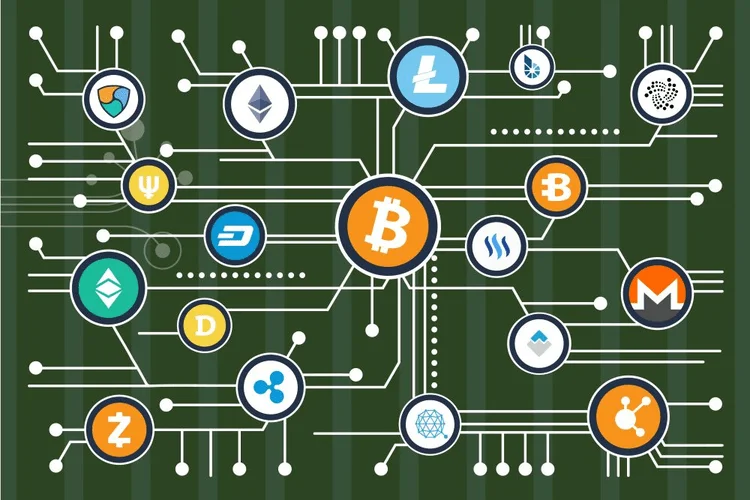Companies are adopting this technology quickly and will soon consume the entire market. There is a list of companies that are using AI models to solve industry problems and lead their respective industries with more advanced technology. This company works in the recycling industry particularly electronic waste, construction, and demolition.
- Additionally, because of their high demand, the cost of hiring is quite high too.
- As a result, the concept of the industrial metaverse has emerged, with virtual systems reflecting real-world ones.
- Their team uses drones fitted with LIDAR sensors to conduct fly-around inspections, and then the drones transmit data to human inspectors who examine the information using tablets and AR glasses.
- On the other hand, manufacturers that adopt AI use it to improve equipment efficiency in production, uptime, and better prediction.
- While manufacturing companies use cobots on the front lines of production, robotic process automation (RPA) software is more useful in the back office.
- Generative design is a bit like the generative AI we’ve seen in technologies like ChatGPT or Dall-E, except instead of telling it to create text or images, we tell it to design products.
Large manufacturers typically have supply chains with millions of orders, purchases, materials or ingredients to process. Handling these processes manually is a significant drain on people’s time and resources, and more companies have begun augmenting their supply chain processes with AI. The machines are getting smarter and more integrated, with each other and with the supply chain and other business automation.
The State of Design & Make: Surviving Change Starts With Digital Maturity
This article covers the impact of AI in manufacturing, spotlighting its exceptional use cases. From predictive maintenance thwarting costly breakdowns to personalized manufacturing tailored to individual needs, AI’s influence permeates production processes. It optimizes workflows, augments supply chains, and fosters collaborative environments where humans and AI-driven robotics harmonize for unparalleled productivity. Manufacturers leverage AI technology to identify potential downtime and accidents by analyzing sensor data. AI systems help manufacturers forecast when or if functional equipment will fail so its maintenance and repair can be scheduled before the failure occurs.
Google Cloud Debuts Industry-Specific Generative AI for … – Acceleration Economy
Google Cloud Debuts Industry-Specific Generative AI for ….
Posted: Mon, 16 Oct 2023 15:00:00 GMT [source]
The development of new products in the manufacturing industry has witnessed a significant transformation with the advent of AI. The integration of AI in the manufacturing industry has brought about innovative approaches and streamlined processes that are revolutionizing the way companies create and introduce new products to the market. For instance, BMW employs AI-driven automated guided vehicles (AGVs) in their manufacturing warehouses to streamline intralogistics operations. These AGVs follow predetermined paths, automating the transportation of supplies and finished products, thereby enhancing inventory management and visibility for the company. Factory automation has been significantly transformed by the integration of artificial intelligence in manufacturing. With the advent of AI and ML, factories are experiencing a paradigm shift in terms of efficiency, productivity, and cost-effectiveness.
The 6 Challenges of Implementing AI in Manufacturing
The company is also using AI to implement predictive maintenance and the monitoring of half a million valves. AI is being used inside many manufacturing operations to streamline processes and improve productivity. For example, textile company Lindström worked with QPR to harmonize and enhance business processes and a process management model to ensure future competitiveness and success. For example, certain machine learning algorithms detect buying patterns that trigger manufacturers to ramp up production on a given item. This ability to predict buying behavior helps ensure that manufacturers are producing high-demand inventory before the stores need it. While manufacturing companies use cobots on the front lines of production, robotic process automation (RPA) software is more useful in the back office.
For example, applying thermal treatment on an additive part can be done straight from the 3D printer. It could be that the material comes in pre-tempered or it needs to be retempered, requiring another heat cycle. Engineers could run various what-if scenarios to determine what kind of equipment the facility should have—it may make more sense to subcontract parts of the process to another company nearby.
Predictive Maintenance
Thanks to AI-powered predictive maintenance, manufacturers can improve efficiency while reducing the cost of machine failure. AI-driven predictive analytics uses historical data, market trends, and external factors to forecast demand accurately. This is crucial for manufacturers to adjust production levels, resource allocation, and inventory management. Accurate demand forecasting reduces the risk of overproduction and stockouts, leading to better cost management and improved customer satisfaction. Let’s take the example of a manufacturing plant that produces consumer goods.

This helps them anticipate fluctuations in demand and adjust their production accordingly, reducing the risk of stockouts or excess inventory. AI manufacturing solutions can analyze multiple variables, such as transportation costs, production capacity, and lead times, to optimize the supply chain network. This ensures timely delivery, reduces transportation costs, and enhances customer satisfaction. Supply chain management plays a crucial role in the manufacturing industry, and artificial intelligence has emerged as a game changer in this field.
Process Improvement
Facility layout is driven by many factors, from operator safety to the efficiency of process flow. It may require that the facility is reconfigurable to accommodate a succession of short-run projects or frequently changing processes. It also may have something to do with the fact that in Taiwan the fabrication plant is in close contact with the company’s R&D lab, which is only a brief train ride away. The equivalent distance when the Phoenix plant is up and running will be a 20-hour flight.
This application enables businesses to collect data from the virtual twin and improve the original product based on data. By using a process mining tool, manufacturers can compare the performance of different regions down to individual process steps, AI in Manufacturing including duration, cost, and the person performing the step. These insights help streamline processes and identify bottlenecks so that manufacturers can take action. Industrial robots have been in manufacturing plants since the late 1970s.
Advantages and Disadvantages of Artificial Intelligence
AI applications in manufacturing go beyond just boosting production and design processes. Additionally, it can spot market shifts and improve manufacturing supply chains. Quality assurance may be the main benefit of artificial intelligence in manufacturing. Businesses can employ machine learning models to spot deviations from typical design criteria, flaws, or consistency issues that a normal person might miss.
It is difficult to determine which process variables result in the best product quality. Numerous Designs of Experiments are often conducted by manufacturing and quality experts to optimize process parameters, but they are frequently expensive and time-consuming. The lack of universal industrial data has been another major obstacle slowing the adoption of AI among mainstream manufacturers. Manufacturing data is often localized or specific to a particular industry domain or a company’s operations.
The Current State of AI in Manufacturing
Adopting virtual or augmented reality design approaches implies that the production process will be more affordable. Artificial intelligence in manufacturing entails automating difficult operations and spotting hidden patterns in workflows or production processes. This means augmenting or, in some cases, replacing human inspectors with AI-enabled visual inspection. This increases accuracy and shortens the time for inspections, reducing recalls and rework and resulting in significant cost savings.
